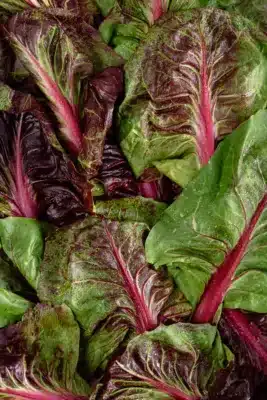Beetroot Leaves Green - Unveiling the Power : Origins, Nutrients, and Health Benefits


Table of Contents
Chukandar in Hindi and In Tamil Chenkilanku (Cenkilanku)
Intro & Origin
Intro
It is one of my best food Beetroot itself and the green leaves, often overshadowed by their vibrant roots, are a hidden gem in the realm of leafy greens. These verdant leaves, attached to the crimson taproot of the beet plant, hold a treasure trove of nutrition and culinary possibilities.
While the beetroot itself enjoys popularity for its earthy sweetness and versatility, its greens often go unnoticed. However, these leaves are a testament to nature’s resourcefulness, offering a wealth of vitamins, minerals, and a unique flavor profile.
Origin
The origins of beetroot green leaves can be traced back to ancient Europe, where the beet plant (Beta vulgaris) was cultivated primarily for its leaves rather than its roots. It was in the Mediterranean region that the cultivation of beets and their greens gained prominence. In ancient times, the Greeks and Romans appreciated both the culinary and medicinal value of beet greens.
As centuries passed, the popularity spread across Europe and beyond, making their way into the culinary traditions of various regions. Today, its green leaves are cherished as a valuable ingredient in salads, sautés, and soups around the world. Their journey from ancient Europe to global tables reflects their enduring appeal and rich culinary heritage.
Nutrients
Nutrient
Unlocking the Nutritional Wealth of Beetroot Green Leaves
Beatroot Green leaves, the vibrant foliage attached to the beloved beetroot, are a powerhouse of nutrition that often remains underestimated. These leafy greens boast an exceptional nutritional profile, offering a spectrum of vitamins, minerals, and unique phytochemical compounds that contribute to their health-promoting properties.
Glycine Betaine for Heart Health: Among the standout components of green leaves is glycine betaine, also known as trimethylglycine. This phytochemical is renowned for its role in lowering homocysteine levels, a key factor in heart health. By incorporating beetroot greens into your diet, you can contribute to maintaining a healthy cardiovascular system.
Mineral and Vitamin Abundance: Green leaves are a nutritional treasure trove, surpassing their root counterparts in several aspects. They are rich in minerals like magnesium, copper, calcium, sodium, potassium, and iron. In the realm of vitamins, they offer an array, including vitamin A, vitamin C, riboflavin, folate, niacin, vitamin B-6
Carotenoids and Antioxidants: The vibrant hues of green leaves are indicative of their carotenoid content, including ß-carotene, lutein, and zeaxanthin. Zeaxanthin, a crucial dietary carotenoid, plays a role in promoting eye health and protecting against age-related macular degeneration.
Low in Calories, High in Fiber: These leafy greens offer the perfect balance of nutrients, with more minerals, vitamins, and fiber than beetroot itself, except for folate. What’s more, they are impressively low in calories, fat, and sugar, making them an ideal addition to a calorie-conscious diet.
As you delve into the world of beetroot green leaves, you unlock a treasure chest of nutrients that can contribute to overall well-being and vitality. Whether enjoyed in salads, sautés, or as a culinary companion, these greens prove that nutritious choices can also be delectable.
Benefits
Health Benefit
Exploring the Remarkable Health Benefits of Beetroot Greens –
Those vibrant and earthy root vegetables, offer a wide array of health benefits that span from cardiovascular wellness to antioxidant support. Discover the remarkable advantages of incorporating beets into your diet and how they can contribute to your overall well-being.
Heart Health: Beatroot is renowned for its heart-healthy properties. They contain nitrates, which the body converts into nitric oxide, a compound that helps relax blood vessels, leading to improved blood flow and lower blood pressure. Regular consumption can contribute to a healthier cardiovascular system.
Rich in Antioxidants: They are also a rich source of antioxidants, including betalains and anthocyanins. These compounds help combat oxidative stress and inflammation, reducing the risk of chronic diseases and supporting overall health.
Enhanced Athletic Performance: The nitrates in the Beetroot Leaves have been shown to enhance exercise performance by improving oxygen utilization and endurance. Athletes often turn to beetroot juice as a natural performance booster.
Digestive Health: Beetroot leaves are good source of dietary fiber, which supports digestive regularity and a healthy gut. They can aid in preventing constipation and promoting a balanced digestive system.
Cognitive Function: The nitrates in beetroot leaves may have cognitive benefits by increasing blood flow to the brain. This can potentially enhance cognitive function and memory.
Detoxification: It contain betaine, a compound that supports liver health and aids in detoxification processes. It helps the liver efficiently process toxins and waste.
Anti-Inflammatory Effects: Beets possess anti-inflammatory properties that can help reduce inflammation throughout the body.
Cancer Prevention: Some studies suggest that the antioxidants in beets may have cancer-fighting potential, particularly in preventing colon cancer. Their anti-inflammatory effects also play a role in cancer prevention.
Weight Management: Beets are low in calories and fat while being high in fiber, making them a satisfying addition to a weight management plan. Their natural sweetness can also satisfy sugar cravings.
Eye Health: Beets contain lutein and zeaxanthin, two carotenoids that promote eye health and may reduce the risk of age-related macular degeneration.
Blood Sugar Control: Although sweet in flavor, beets have a relatively low glycemic index, meaning they have a smaller impact on blood sugar levels. This can be beneficial for individuals managing diabetes or those looking to maintain stable energy levels.
Skin Health: The antioxidants in beets contribute to skin health by combating free radicals and supporting collagen production, promoting a youthful complexion.
Incorporating beets into your diet, whether roasted, juiced, or added to salads, can be a flavorful way to harness these health benefits. They showcase nature’s ability to provide both nutrition and taste in a single package, making them a valuable addition to a balanced diet.
Face off
Beet Greens vs. Swiss Chard: A Nutritional Face-Off
Both beet greens and Swiss chard belong to the same botanical family, but they differ in taste, appearance, and nutritional content.
Flavor and Appearance:
Beet Greens: Tend to have a slightly earthy and bitter flavor, with vibrant red or purple veins on the leaves.
Swiss Chard: Boasts a milder taste, often described as slightly sweet or nutty, and comes in a variety of colorful stems, including red, yellow, and white.
Nutrient Content:
Beet Greens: Packed with nutrients like vitamins A, C, and K, as well as minerals such as iron and calcium. The presence of betalains provides antioxidant benefits.
Swiss Chard: Rich in vitamins A, K, and C, and minerals like magnesium and potassium. It also contains syringic acid, known for its blood sugar-regulating properties.
Health Benefits:
Beet Greens: Supports cardiovascular health, aids in digestion, and may help regulate blood pressure due to its nitrate content.
Swiss Chard: Promotes bone health, supports immune function, and contributes to healthy skin, thanks to its diverse nutrient profile.
Culinary Use:
Beet Greens: Can be used in salads, sautéed, or added to soups. The slightly bitter taste complements various dishes.
Swiss Chard: Versatile in the kitchen, Swiss chard can be sautéed, steamed, or used in salads. The colorful stems add visual appeal to culinary creations.
Growing Conditions:
Beet Greens: Typically harvested as a byproduct when harvesting beets, but the greens can also be cultivated separately.
Swiss Chard: Grows well in a variety of climates and can be harvested throughout the growing season.
In conclusion, while both beet greens and Swiss chard offer numerous health benefits, the choice between them may come down to personal taste preferences and the specific nutrients you’re seeking to incorporate into your diet.
